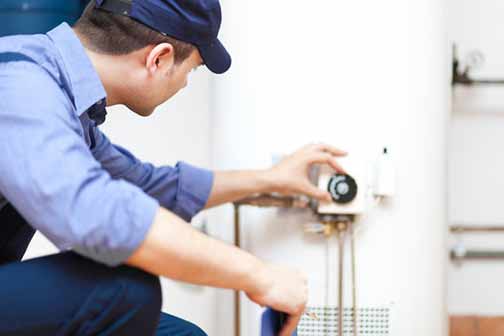
Good maintenance done regularly is the most important factor in the performance and longevity of a water heater, notes Propertycare Management. All water heaters come with an expiration date; no water heater is expected to last forever. However, the water heater’s lifespan depends on how well it is looked after.
Common issues that can shorten the service lifespan of a water heater include:
- Sediment buildup inside the water heater tank.
- Corrosion and rust, resulting in a leaky tank or pipe joint.
- Problems in the temperature and pressure relief (TPR) valve.
- Leaks from surrounding pipes and plumbing fixtures.
- Excessively high water pressure causes internal damage.
- Impurities inside the home’s cold water supply.
- Dampness in the area around the water heater.
All these problems can be prevented or solved with proper water heater maintenance. A well-maintained water heater will reduce your energy bills and protect the critical structures of your home from water damage. How should you maintain your water heater?
How to maintain and operate your water heater
Inspect your water heater regularly
There are two kinds of inspection you should do for your water heater. Firstly, routine monthly inspections are done by you. These are superficial since they don’t require you to do an in-depth examination of the unit. But they are invaluable for catching problems at their early stages. The second type of inspection should be done by a professional plumber at least once a year. Inspections are the most effective and cheapest way to ensure the optimal functioning of your water heater.
Flush the water heater tank
Ideally, this should be done once every year. However, if your area’s water supply is hard or it contains more foreign materials, you may want to flush the water heater tank every six months. Flushing your water heater tank will remove any sediment that has settled at the bottom of the reservoir. It can help to prevent corrosion. Homeowners should know how to flush their water heater tank; the process is straightforward.
Insulate the water heater tank
This is not a maintenance step; it improves the efficiency of your water heater by reducing heat loss from the tank. Insulating the water heater tank will keep the water inside it hotter for longer periods. The water heater will not have to work as hard to reheat this water when needed. This can have a significant positive impact on your home’s energy bills. Insulating your water heater tank also helps to prolong its life.
Adjust the temperature settings
In most homes, the water heater is set to very high temperatures – as high as 140 degrees. Most times, this is completely unnecessary and a total waste of resources – money and energy. For an overall better outcome, the temperature should be set to 120 degrees. With the temperature set to this level, your hot water will always be the right temperature (you can avoid scalding) and you also get to save on energy costs. Furthermore, you prolong the life of your water heater.
Replace worn-out anode rods
The anode rod protects your water heater tank from corrosion by attracting the corrosive ions in water. In this way, the anode rod sacrifices itself to preserve the water heater tank. The consequence of this is that the anode rod eventually becomes corroded. To check your anode rod, you have to remove it from the tank. If more than half of it is gone, it is time to replace it. Unless you inspect your water heater regularly, you will not know if your anode rod is worn out.
Insulate the connecting pipes
Most of the heat loss from a water heater happens around the tank and water pipes that connect to the water heater. Insulating the cold water pipes will keep the water inside them warm, reducing the energy needed to heat the water. Insulating the hot water pipes helps to prevent heat loss from the already heated water inside the pipes. Insulating your water pipes will not just reduce your energy costs, it will lower the risk of frozen and burst pipes in your home.
Work with a professional plumber
Finally, you will need the expertise of a professional plumber. There are many things you can – and should do – by yourself when maintaining your water heater. However, it is vital to recognize the limits of your abilities. Some things can only be done by a licensed water heater repair or replacement specialist.
For instance, a professional plumber with experience in water heater repair and maintenance:
- Spots problems long before you become aware of them.
- Knows the most common water heater issues in your region and how to prevent them.
- Keeps you abreast of technology and legislation that affect your water heater.

